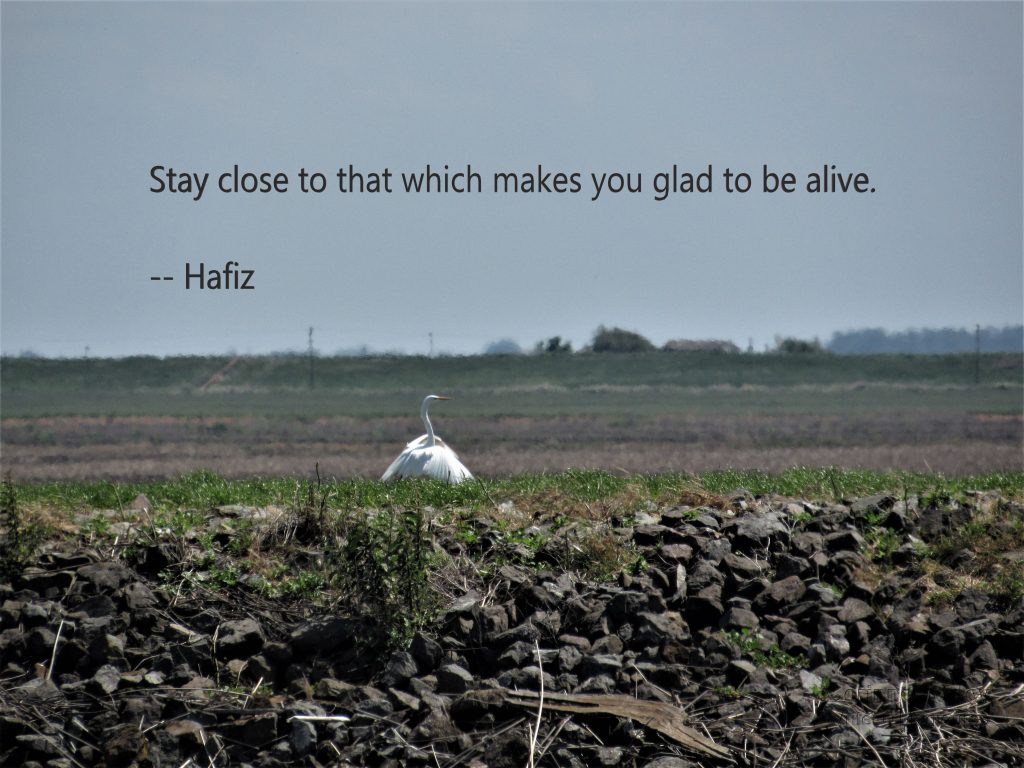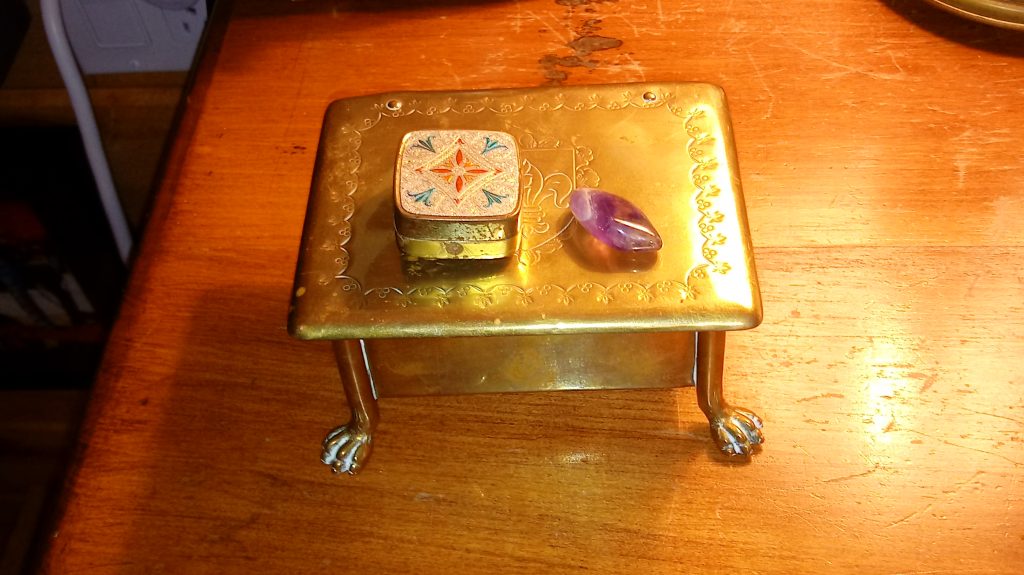Once again I leave the park not long after daybreak to pull onto the levee road and stalk the crows. I hover in my car under utility poles and on the edge of the field. I watch the lumbering machines and the unconcerned seagulls. I do not understand why they venture so far inland. Once in a while they lift into the air and flutter a few feet forward. They walk among the tender shoots, framed by the wild flowers blurred in the foreground.
In the trees which rise above the slough I see two crows. I strain to capture the curve of their wing and their raised beaks. Across the way, I study a hawk through my lens. His feathers tremble in the morning wind. He turns his head. I swear he studies me. Then he gazes once more into the western sky. I put my car in drive and inch slowly down the roadway. I do not want to startle him.
A lone heron leans over the slough. He bends low. Perhaps he takes a drink; maybe he finds the reflected eye and searches for a glimmer of his own truth. I sit for quite a few minutes waiting to see if he intends to step into the water or launch towards the narrow bend beyond my sight. But he just stands. He has patience enough for the likes of me.
The days eases by without much fanfare. I can still work. Today we orchestrated a signing for a man who called on Tuesday, desperate to check on the status of his will. My platelets are low, he said, in a clear firm voice. I don’t think I can wait. He has cancer.
He and his wife both wore the special masks, the ones we’re told cannot be found. They have just been at his doctor’s office and come bearing a letter authorizing him to be in our office due to exigent circumstances. We all use hand sanitizer. Before he arrives, we wipe everything down with bleach cleaner. After he and his wife have left, bearing the binder of executed documents, I stand in our hallway. I have no words.
Later I trade texts with my son. He tells me yes, he is still working, having been designated as essential by the governor of Illinois. In the moment, I feel both proud and terrified. My son, the union organizer. Essential to the workers of Chicago. I want to wrap him in cellophane with a steel straw for an air hole. I respond with one word, Good. I whisper into the quiet of my house: May God keep him safe. One of the angel ornaments on my railing vibrates a little. I think she knows.
It’s the first day of the seventy-sixth month of My Year Without Complaining. Life continues.
Barter
BY SARA TEASDALE
Life has loveliness to sell,
All beautiful and splendid things,
Blue waves whitened on a cliff,
Soaring fire that sways and sings,
And children’s faces looking up
Holding wonder like a cup.
Life has loveliness to sell,
Music like a curve of gold,
Scent of pine trees in the rain,
Eyes that love you, arms that hold,
And for your spirit’s still delight,
Holy thoughts that star the night.
Spend all you have for loveliness,
Buy it and never count the cost;
For one white singing hour of peace
Count many a year of strife well lost,
And for a breath of ecstasy
Give all you have been, or could be.

